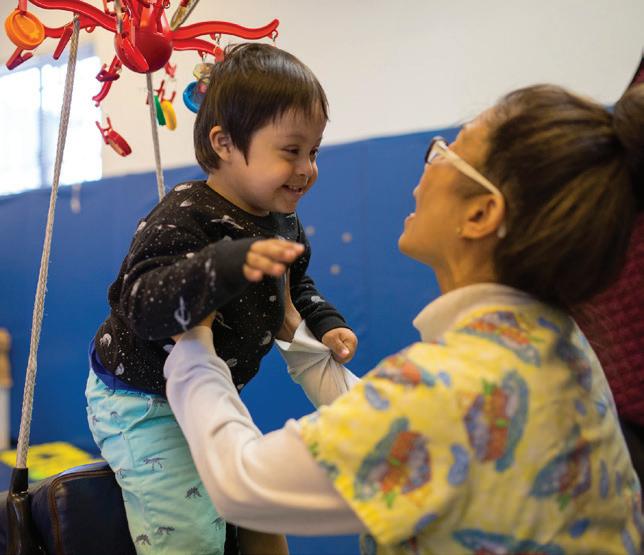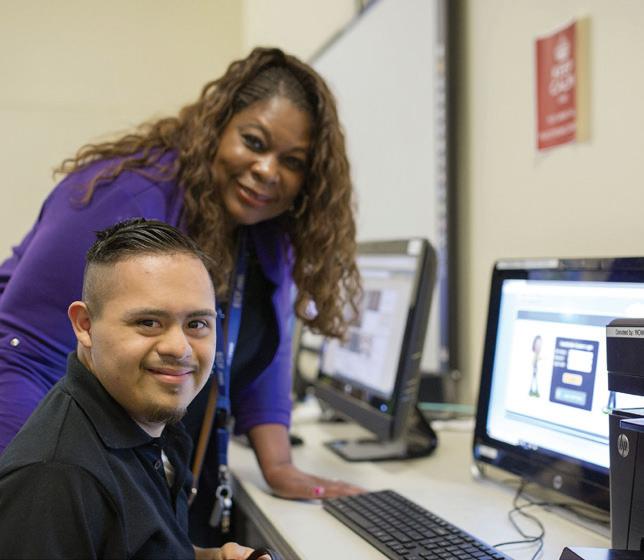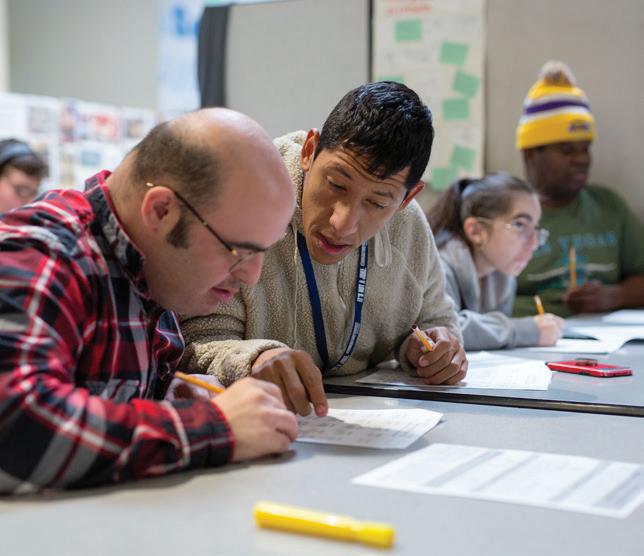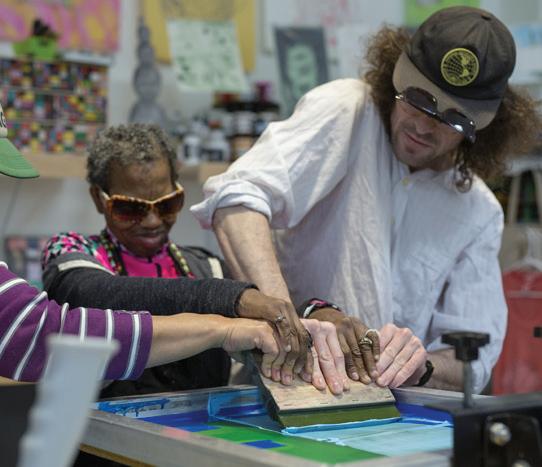
3 minute read
2023-2026 Strategic Plan
Introduction
This plan represents the principal strategic initiatives, goals, and objectives of ECF, for the next three years. After considerable review and analysis by both the senior leadership team and the governing body, this plan was adopted in the spring of 2023. ECF is committed to implementing this plan as a statement of its resolve to continue to be an organization rooted in its mission and effective as a premier provider of services to those challenged with special needs.
Strategic Pillars
PILLAR 1 Sustain Mission Effectiveness and Impact
INITIATIVE A – Maintain sustainability of service array:
• Conduct analysis of practice trends and opportunities
• Explore alternative funding streams, including social enterprise, merger, or partnership opportunities
INITIATIVE B – Review organizational effectiveness and efficiencies:
• Infrastructure review and alignment
• Identify and prioritize initiatives that support quality assurance, professional development, and impact measurement
INITIATIVE C – Brand exploration and strategy development
PILLAR
2 Strengthen Workforce Capacity
INITIATIVE A – Develop and sustain a comprehensive approach to:
• Talent recruitment
• Onboarding
• Retention
INITIATIVE B – Determine how to maintain a competitive compensation package
INITIATIVE C – Leverage HR management system efficiencies
PILLAR
3 Strengthen Organizational Culture
INITIATIVE A – Improve intra-organization communication
INITIATIVE B – Streamline decision making process:
• Review and clarify decision making practices
• Create a shared understanding of decision making process
INITIATIVE C – Strengthen employee relations initiatives
PILLAR 4 Anticipate Governance Development
INITIATIVE A – Acknowledge ongoing generation transition:
• Prioritize board succession initiatives
INITIATIVE B – Develop strategies to maintain and strengthen board governance:
• Review and assess governance functions
• Enhance member diversity
INITIATIVE C – Review the role of the board regarding philanthropic support:
• Overall fund development strategy
Implementation
For each of the strategic initiatives associated with the four pillars, a detailed tactical plan has been developed for each year identifying action items, goals, targeted completion dates, and those responsible for its execution. The detailed tactical plan for each year becomes a source of reference to determine progress regarding each strategic pillar and serves as the basis for reporting to the board of directors, staff and all interested parties.
Program Descriptions
Early Start
The ECF Early Start Program provides home-based and center-based early intervention and educational services to families with children 0-3 who are developmentally delayed or disabled. Speech, occupational and physical therapies guide each child to develop motor, cognitive, language and social skills—contributing to healthy and age-appropriate development. Family supports offered include parent education, counseling, referrals and advocacy, and medical assessments.

Kayne Eras School
ECF’s WASC-accredited nonpublic K-12 school provides special education for students who have learning, emotional and developmental challenges. An Enrichment Program is also offered, including visual and performing arts, team sports, vocational and technology training and community service. All of our educators are committed to the idea that every child can learn—and with individualized support and care, we help each child develop their confidence and unique potential so they can succeed both in and out of the classroom.

Mental Health Services
Individual, group and family treatment is provided to help students overcome complex challenges that create barriers to their academic success, while also supporting their family members in improving overall family functioning. Medication evaluation and management is available, as is Applied Behavioral Analysis Services for those with autism spectrum disorders.
Exceptional Works / Pathways to Employment
ECF’s Exceptional Works program is a unique continuum of services that offer skill development, work training, on-site paid work experience and placement into community jobs—all creating Pathways to Employment.

• WORK READINESS teaches participants the skills needed to find and retain a job.
• EXCEPTIONAL PACKAGING SOLUTIONS offers participants skills training and paid work experience while fulfilling packaging and assembly contract work from local businesses.

• EXCEPTIONAL TRAINING ACADEMY offers hands-on specialized vocational training in computer literacy, culinary arts, janitorial services and warehouse operations.
• COLLEGE CLASSROOM PROGRAM, in partnership with educational institutions, provides in-class support to adult students, helping them successfully complete vocational training courses.
• EXCEPTIONAL EMPLOYMENT SOLUTIONS offers job placement and on-the-job training and coaching support.
ECF Art Centers Program

Established in 1968, the ECF Art Centers program provides fine art training along with opportunities for participants to exhibit and sell their work. Juried art shows, local gallery exhibits and partnerships with local artists and arts organizations provide community exposure for artists and their work. View and purchase art at www.ArtECF.org
Developmental Activity Center
The Developmental Activity Center provides participants with opportunities to strengthen their independence, social skills and self-determination, all with respect for each person’s ability level. Skills are reinforced through community integration experiences such as grocery shopping, attending cultural events and participating in volunteer opportunities.
Exceptional Community Connections
Exceptional Community Connections offers meaningful volunteer opportunities where participants can integrate into community ettings. Service projects are designed to assist participants in developing a variety of skills, along with sense of self-worth, while meeting the needs of diverse communities.


Residential Services
Residential Services offers a variety of living arrangements from apartment complexes to group homes, combined with independent living skills training and support services to foster the highest level of client independence. Around-the-clock assistance and medical supervision services are available to meet clients’ needs.


